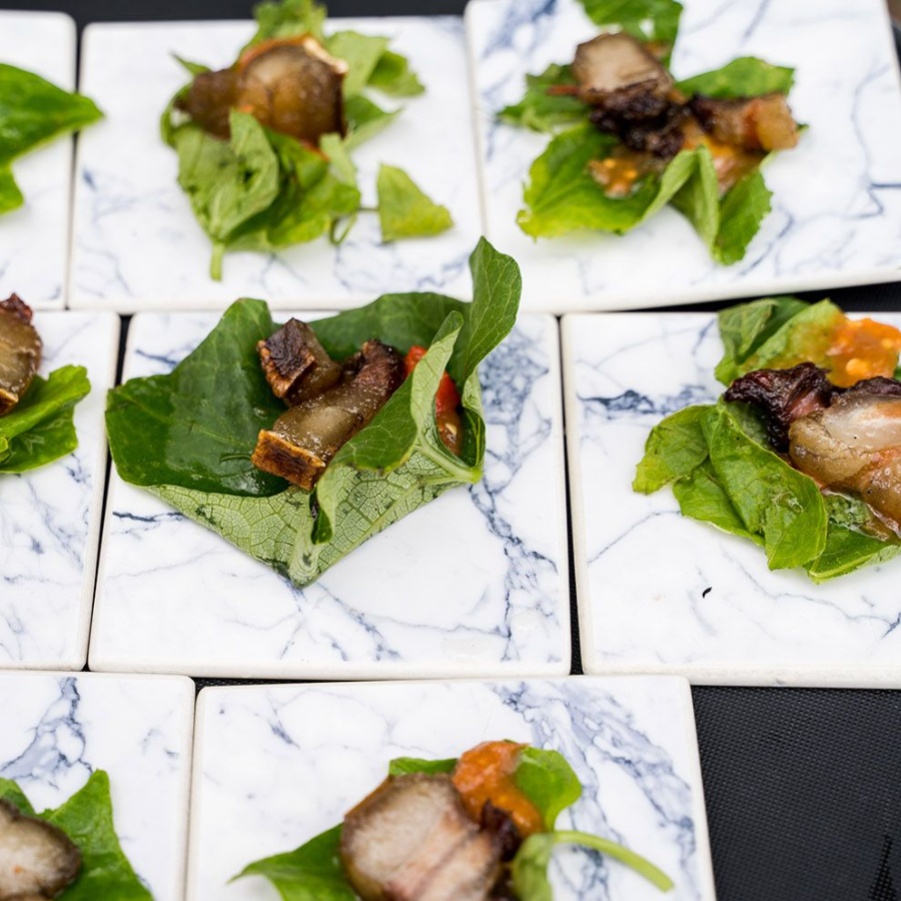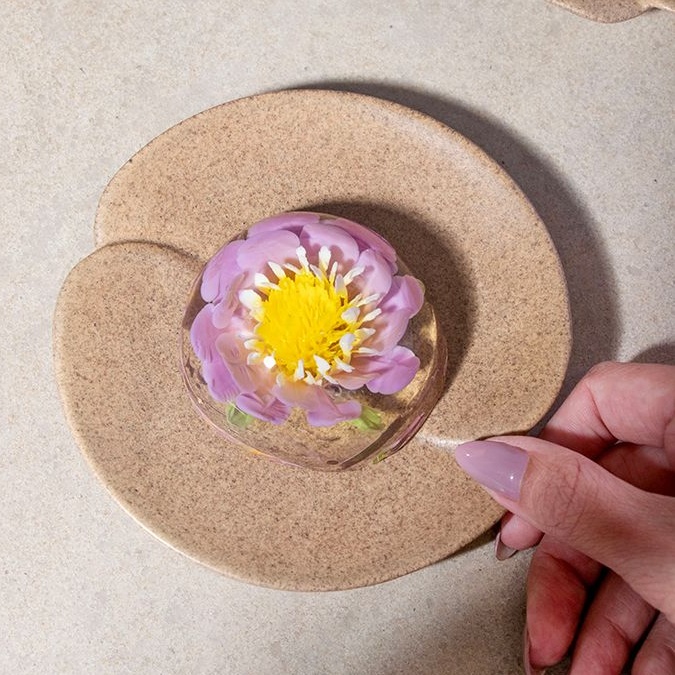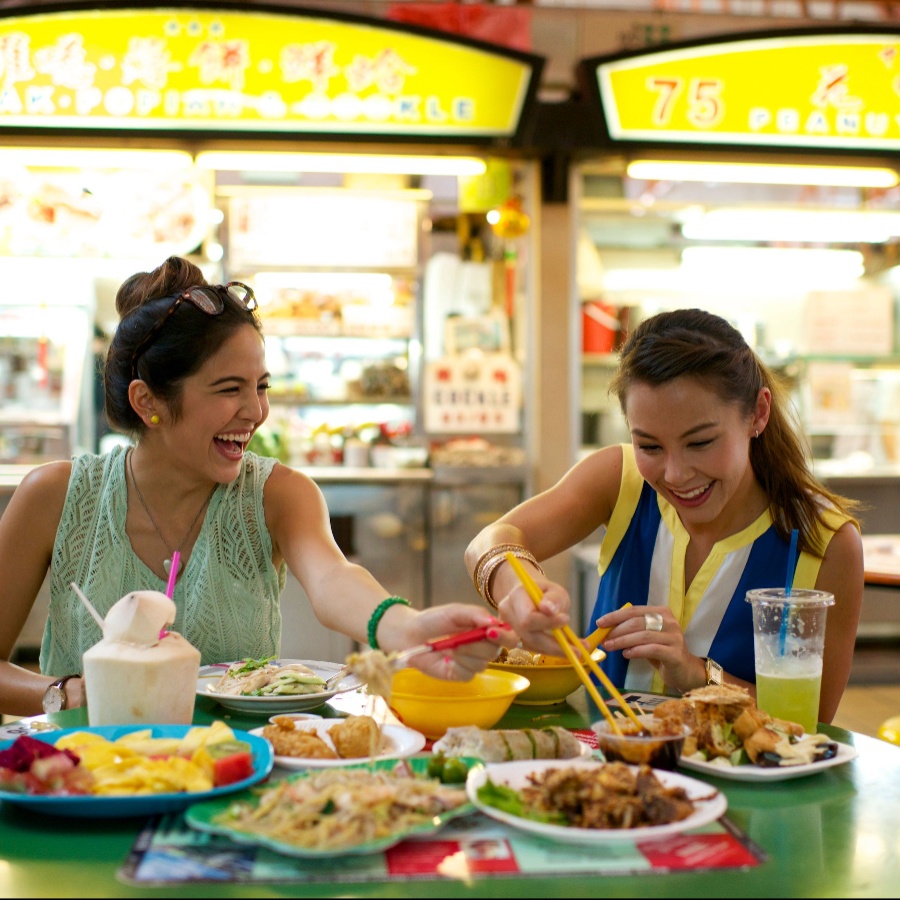When we think of Tamil cuisine, why do we so rarely think of its brilliant ways with meat?
It’s a question that struck me while I sat at Dindigul Ponram in Bengaluru’s Koramangala neighbourhood. There were words on the menu I was absolutely not expecting: spleen, brain, trotters. When I think about it, though, there’s no reason to be surprised about the existence of a nose-to-tail culinary culture in any part of India, so I felt like I’d been personally brainwashed when I was so taken aback that these items were from a South Indian state which, I now think, actually outdoes Kerala when it comes to meat preparations. That is one of the reasons why dining at Dindigul Ponram felt very much like a learning experience.
The 160-seater is owned by the Ponram family from Dindigul, a district nestled between Madurai and Coimbatore, and the Bengaluru outpost, the first outside Dindigul, is the sixth by the legacy restaurateurs who’ve been in the food business for more than 50 years.
Dindigul is a place many automatically associate with food. It has something to do with the fact that the town’s name is part of a massive PE-funded restaurant chain (Dindigul Thalappakatti) with some 100 locations within India and abroad. And if you look at MakeMyTrip reviews, you’ll see the town is considered by many to be the biryani capital of the country.
On the thali in front of me lay a round-cut banana leaf laden with a sampler of the Ponram family’s bestsellers. Everything seemed familiar in the way that Indian food can sometimes fool you into thinking you’ll know how a particular thing will taste even though you haven’t had it before.
The preponderance of sheep at this restaurant was my first surprise. All the mutton dishes here are made of sheep, not goat—from the small mound of biryani to the perfectly round mutton kola urundai (deep-fried, crispy mutton mince balls) to the fistful of mutton chukka varuval and egg scramble. The last was a stronger-flavoured version of the classic egg kalakki, with bite-sized, tender, boneless pieces of mutton roasted in chukka masala. The mince balls—a staple of Madurai’s dining-mess menus—get gentrified here. They were soft, the meat minced into an evenly spiced uniformity, with a hint of coconut.
Even when flavours were recognisable, they weighed in very differently. When you hear ‘biryani’, you expect that familiar medley of rice and meat often overwhelmed by fat. But the Ponram version is made from the tender meat of sheep that is no more than eight to nine kilos, which ensures an ideal fat-to-meat ratio, so the dish had none of the overwhelming greasiness that leaves your palm sticky and your digestive system annoyed. The spices were happily polyamorous, sharing equal space, including the heat. They are at the heart of every dish on the menu, and remain a deeply guarded secret, with recipes handed down only to the women in the Ponram family. Several dishes are spiced by what is described as house-made chukka masala, made from ingredients sourced from around the Dindigul area. And in that way with freshly bloomed spices and herbs, I could identify, in various dishes, coriander, star anise, cardamom, black pepper, even a hint of smoke from the meat-cleaning process—everything in perfect balance.
Of course there are vegetarian dishes on the menu, and some fish. But if you are a meat eater, then stick with the Ponram classics because it’s in those that you experience this cuisine at its best.
I went to the restaurant twice, once for lunch and then on a rainy, cold evening. The second time, my meal began with the mutton kaal soup, a broth of trotters that warms you up gently with its subtle blend of spices. Next came the mutton thalai kari, a dish of tava-roasted mutton head meat. I wasn’t sure what to expect. Maniram Ponram, the great-grandson of the founder, oversees operations here, and he told me only to be prepared to be surprised. Which I was. The meat was exceptionally tender, with a bit of collagenous soft bone, all bound together by the said house-made masala. There is also a spleen version of this dish. And a particularly popular item on the menu is the brain 65. Made from the whole organ of one sheep, it features small chunks coated in spices and deep fried, giving the dish two contrasting textures.
Of the organ dishes, I particularly liked liver. It’s an organ that, when cooked, offends many people because of its strong, almost metallic flavour, but in the Ponram mutton liver varuval, the more egregious flavour notes are diminished by the masala, and what you end up with is a soft bite of perfect organ meat.
I’d classify Dindigul Ponram as a family restaurant, a sit-down-and-take-your-time kind of place that you visit with your food-focused family to taste homestyle cooking made better. It is fuelled by SOPs and process management, but laser-focused on flavour and quality the way you’d expect from a chef-led restaurant. The secret is in the quality of ingredients, particularly the meat, which is nurtured even before a cut is made. Maniram told me, “When sheep are sourced from the farm, they aren’t slaughtered immediately. Instead, we keep them on our farm for two days to help them acclimatise and reduce the shock, which enhances the quality and flavour of the meat.” You can taste that level of attentiveness in the food. And it is this kind of detail that makes Dindigul Ponram a place of not just eating, but learning.
Meal for two: ₹1,000
Timings: 12 noon-11:00 pm
Address: Dindigul Ponram, Shop No 575, Ganapathi Temple Rd, Koramangala 8th Block, Koramangala, Bengaluru
Call: 94869 81222







